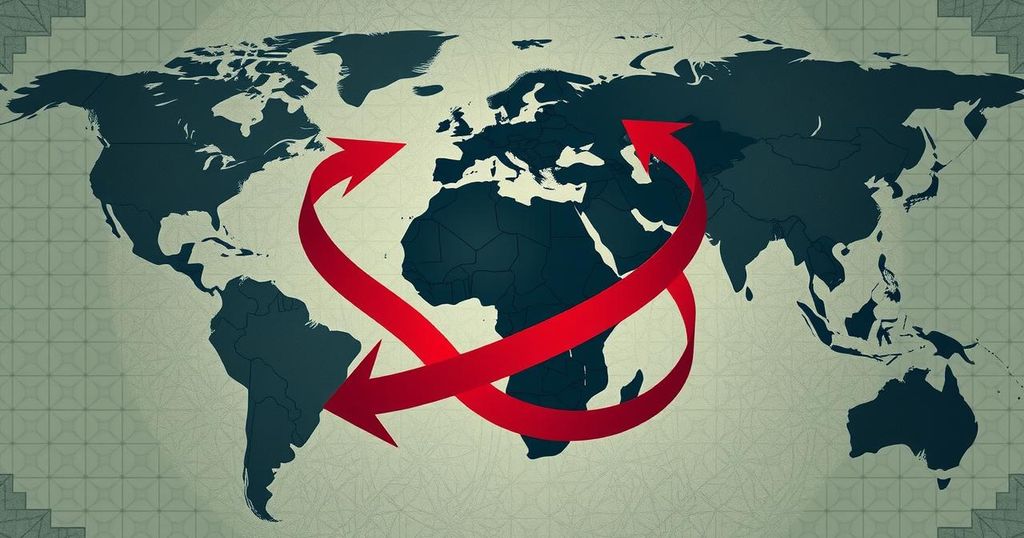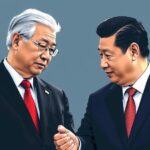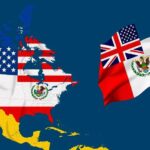Politics
AL JAZEERA, ASIA, BEIJING, CANADA, CHAISSE, CHINA, CITY UNIVERSITY, DAVOS, DONALD TRUMP, EUROPE, EUROPE/ASIA, FOREIGN POLICY, FORUM, FOX NEWS, GEOPOLITICS, GEORGIA, HONG KONG, JULIEN CHAISSE, MEXICO, MINISTRY OF COMMERCE, NATIONAL SECURITY, NORTH AMERICA, PHILIPPINES, SWITZERLAND, TAIPEI, TAIWAN, TARIFFS, TRUMP, UNITED STATES, US, US-CHINA RELATIONS, WASHINGTON, WORLD TRADE ORGANIZATION, XI, XI JINPING
Nia Simpson
Trade Dynamics: Response of Mexico, Canada, and China to U.S. Tariffs
After President Trump’s tariffs on China, Canada, and Mexico, both Canada and Mexico swiftly retaliated with their own tariffs on U.S. imports. China’s response was notably restrained, focusing on potential actions in the World Trade Organization. Analysts suggest that despite economic pressures, Beijing may be positioning itself strategically for future negotiations, particularly in light of its larger GDP compared to its North American counterparts. The situation reflects evolving geopolitical dynamics as trade tensions continue to escalate.
In response to the tariffs announced by President Donald Trump on China, Canada, and Mexico, both Mexico and Canada quickly implemented their own tariffs on U.S. goods. In contrast, China’s response was measured, with its Ministry of Commerce indicating future countermeasures without announcing specific tariffs. Beijing also signaled its intention to contest the U.S. tariffs at the World Trade Organization, though this tactic has limited immediate impact due to the appellate body’s operational issues.
China’s subdued reaction aligns with its historical approach to U.S. tariffs, which typically involves precise responses to avoid escalation. As the U.S. and China maintain a surprisingly amicable relationship under President Trump’s second term, analysts express cautious optimism for potential negotiations. Experts suggest that, while diverging objectives exist, both leaders might find ground for a compromise amid rapidly changing geopolitical dynamics.
The new tariffs imposed by Trump raise the average tariff rate on Chinese goods significantly. In comparison, while Canada and Mexico brace for their tariffs, China faces ongoing tariffs with an increased burden but maintains stronger economic leverage relative to its North American counterparts. The Peterson Institute for Economic Affairs posits that these tariffs could notably impact the economies of all involved countries over the next few years.
Economically, China could withstand the new U.S. tariffs better than Canada and Mexico, given its larger GDP. Academic experts contend that the perceived economic adversities might be greater for the U.S., as citizens experience rising inflation. If the situation escalates, they believe China retains significant retaliatory capabilities.
Recent reports suggest that China may suggest reviving the 2020 trade agreement, which stipulated a $200 billion procurement of U.S. goods. Nonetheless, compliance issues during the pandemic hindered full adherence to this agreement. Analysts propose that reaching a tangible trade deal could be a strategic objective for the U.S. and China amidst the current trade tensions.
The recent announcement of tariffs by President Trump on China, Canada, and Mexico has stirred global trade dynamics. This involves significant economic implications, especially for the United States’ relationships with its closest trading partners and its biggest strategic rival, China. The background of these tariffs stems from longstanding trade disputes that have escalated into economic sanctions and counteractions.
In summary, the new round of tariffs initiated by the U.S. highlights the complexities in international trade relationships. While Mexico and Canada promptly retaliated, China opted for a more restrained approach, emphasizing the importance of international regulations through the WTO. The implications of these tariffs could play a critical role in shaping the economic futures of the involved nations, revealing the strategic maneuvering at play in global economics.
Original Source: www.aljazeera.com








Post Comment